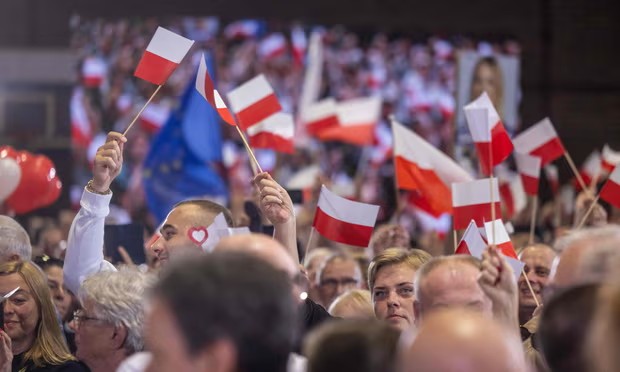Poland, a nation with a rich and often turbulent history, frequently finds itself at ideological crossroads during its electoral cycles. Whether presidential, parliamentary, or local, each election becomes a pivotal moment, shaping not just domestic policy but also the country’s complex relationship with the European Union and its position on the international stage. These contests are consistently characterised by fierce debates over core values, economic direction, and national identity, reflecting deep divisions within Polish society.
The recurring clash of political visions
Polish elections often see a fundamental clash between two broad political visions. On one side are the liberal, pro-European forces, typically advocating for closer integration with the EU, adherence to Brussels’ democratic standards, and a more open, diverse society. They tend to champion individual liberties and a market-oriented economy that aligns with Western norms.
Conversely, the nationalist-conservative bloc emphasises national sovereignty, traditional Catholic values, and a strong, independent Polish state. They often express scepticism towards EU overreach and prioritise what they perceive as national interests, sometimes fostering a more insular foreign policy. This enduring ideological divide ensures that each election is not merely about personalities but about the very soul of the nation.
Key issues: Beyond the ballot box
Several persistent issues dominate Polish electoral campaigns, irrespective of the specific election type. The rule of law has emerged as a central battleground, particularly regarding the independence of the judiciary. Disputes over judicial reforms have frequently strained relations with the European Union, leading to ongoing legal challenges and financial penalties.
Economic policy is another constant, with debates ranging from social welfare programmes and taxation to the role of state-owned enterprises. Voters are often asked to choose between more redistributive policies aimed at social cohesion and those prioritising fiscal discipline and economic growth through liberalisation.
Social values also play a significant role, reflecting Poland’s conservative social fabric. Issues such as women’s rights, particularly abortion laws, and LGBTQ+ rights, frequently become flashpoints, mobilising different segments of the electorate and highlighting the country’s cultural divides.
External influences and geopolitical considerations
Poland’s elections are rarely purely domestic affairs. The country’s geopolitical location, bordering Ukraine and sharing a complex history with Russia, means security is a perpetual concern. Candidates’ stances on military spending, NATO alliances, and support for Ukraine are heavily scrutinised. The relationship with the United States, often seen as a crucial security guarantor, also features prominently in foreign policy debates.
The European Union remains a constant, often contentious, backdrop. While EU membership enjoys broad public support, the specific terms of that relationship – from the flow of EU funds to the degree of sovereignty ceded to Brussels – are hotly debated by political parties.
The enduring impact of electoral outcomes
Each election in Poland has profound and lasting consequences. The outcome determines not only the composition of the government or the identity of the president but also sets the tone for legislative priorities, judicial appointments, and Poland’s engagement with its international partners. A president from one ideological camp facing a government from the other can lead to political gridlock, often through presidential vetoes, shaping the legislative landscape for years. Conversely, alignment between the presidency and government can accelerate major policy shifts. Ultimately, Poland’s electoral battles are a testament to its vibrant, if sometimes fractious, democracy, where the fundamental direction of the nation is continually put to the test.
newshub finance



Recent Comments